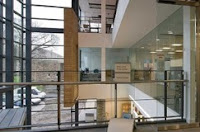It was Lord Marmot who in his publication Marmot: A strategic review of health inequalities in England post-2010 set out the six main policy areas that required action to be taken if health inequalities were to be reduced. These policy areas: (1) Give every child the best start in life (2) Enable all children young people and adults to maximise their capabilities and have control over their lives (3) Create fair employment and good work for all (4) Ensure healthy standard of living for all (5) Create and develop healthy and sustainable places and communities (6) Strengthen the role and impact of ill health prevention provide the strategic framework for developing a fully integrated public health policy for England.
The UK Government’s Health and Social Care Bill 2011 introduced the new Health and Wellbeing Board which is charged with improving local health and social care, and reducing health inequalities. It sits within the local authority, although responsibilities for delivering many of the Boards functions will have to be shared between agencies. The Health and Wellbeing Board have a statutory responsibility for the delivery of a local Joint Strategic Needs Assessment and Joint Health and Wellbeing Strategy in order ensure joined up commissioning across health, public health, social care is achieved. What’s exciting about these changes is that the Board will need to think more creatively for innovative solutions and draw upon wider services in order to more effectively promote health and wellbeing, and for delivering value for money.
So I was pleased this week to read the publication from the Northern Housing Consortium entitled A Foot in the Door. This publication is both very informative (in terms of describing the emergent health and care structures and organisations) and a useful and useable ‘tool kit’ for those working in the housing sector to use when looking at developing more collaborative relationships with health and well being commissioners and providers.
The NHC Chief Executive, Jo Boaden is enthusiastic about tackling some of the complex issues that result in such persistent health inequalities. The toolkit reminds the housing sector that they already have an invitation to get involved and that the agenda for change is clear. Poor housing conditions are implicated in up to 50,000 deaths in the UK; cause 0.5 million injuries and illnesses that require medical attention; and contribute to increased risk of cardiovascular diseases, respiratory diseases and depression and anxiety.
There are huge economic issues associated the provision of poor housing. The estimated costs to the NHS in England each year is around £600m to provide treatment for health problems arising from poor housing. In 2010 the average cost of a fractured hip is £29665; five times the cost of an average adaptation and 100 times the cost of fitting hand and grab rails for older people. Research shows that investment of £1.6bn in housing related support generated savings of £3.41bn to the public purse including £315m of savings to health service in a year. The NHC note that investment in specialist housing could result in savings to the public purse of £639m each year, including an estimated saving of £11751 per person to the NHS for those experiencing a mental health problems.
The challenges for the School in responding to these opportunities are fantastic. Developments such as these in the Schools operating environment present us with a much wider range of opportunities to bring our combined expertise to bear in developing new programmes of education, research and engagement. However, I will have to leave such thinking until later. Instead of sitting in my bed with a cup of tea at 05.00 am on Sunday morning writing this blog, I am in the Business lounge at Dubai airport on my way to Australia and its 07.45 am 03.45 UK time, some 7 hours after leaving Manchester last night. And I’m just a little tired to be thinking about anything other than the next 14 hour flight to Melbourne. The really good news is that Qantas (the internal carrier for Emirates) have gone on strike. I am not sure how I get to my final destination, Adelaide!

























